The map above shows what an alternate United States might have looked like if the The Annexation Bill of 1866 had passed.
The bill would have authorized the President of the United States to, subject to the agreement of the governments of the British provinces:
“publish by proclamation that, from the date thereof, the States of Nova Scotia, New Brunswick, Canada East, and Canada West, and the Territories of Selkirk, Saskatchewan, and Columbia, with limits and rights as by the act defined, are constituted and admitted as States and Territories of the United States of America.”
Or to put it more simply, the bill would have annexed Canada, before Canada became a country.
Several financial incentives were offered to the British Colonies to help get them on board including:
- Purchase of the Hudson’s Bay Company’s lands for $10,000,000.
- Take over provincial debts which amounted to $85,700,000.
- Give an annual subsidy of $1,646,000 to the new states.
- Connect Canada with the Maritimes by rail and spend $50,000,000 to complete and improve the colonial canal system.
If the bill had passed, it would have added 4 new states and 3 new territories to the United States.
States:
- New Brunswick: Modern-day New Brunswick
- Nova Scotia: Modern-day Nova Scotia and Prince Edward Island
- Canada East: Modern-day Quebec, Newfoundland and Labrador, and part of modern-day northern Ontario.
- Canada West: Modern-day southern Ontario, and part of modern-day northern Ontario.
Territories:
- Selkirk Territory: Modern-day Manitoba, and parts of modern-day northwestern Ontario, Nunavut, Saskatchewan and the Northwest Territories
- Saskatchewan Territory: Modern-day Alberta, and parts of modern-day Saskatchewan, British Columbia, the Northwest Territories and Yukon.
- Columbia Territory: The part of modern-day British Columbia west of the Rocky Mountains.
The Annexation Bill of 1866 of course excluded Alaska, which at the time was still owned by the Russian Empire. Yet, Alaska would actually go on to join the United States the following year when it was purchased from Russia for $7.2 million.
The Annexation Bill of 1866 was introduced by Massachusetts Congressman Nathaniel Prentice Banks and was intended to appeal to Irish Americans who supported the Fenian Movement, which was extremely hostile to Britain.
However, while the the bill was sent to committee, it never came back and was never passed in the United States House of Representatives or even presented to the United States Senate.
Nevertheless, it does make one wonder if it would have been possible for the US to annex Canada in 1866. Here are a few key facts:
- US population in 1865: approximately 35 million.
- Population Great Britain and Ireland in 1861: around 29 million
- Population of British North America in 1867: around 3.5 million
- Size of the Union army at the end of the Civil war: around 600,000 men
- Size of British Army in 1861: around 220,00 men
The US obviously defeated the UK in the Revolutionary War at the end of the 18th century. However, it was unable to invade Canada during the War of 1812, which resulted in a draw (with both side declaring victory).
By the end of the Civil War the Union Army alone was several times the size of the British Army and located right next door to Canada, whereas the British were an ocean away and had to use deploy their army throughout their Empire.
In terms of population the two sides are remarkably evenly matched with British North America plus Great Britain and Ireland almost exactly matching the population of the United States.
The economy of the United States was in poor shape following the Civil War, with huge debts and the economies of the Southern States in ruins. Great Britain, on the other hand, was the pre-eminent industrial power in the world at the time with the world’s most powerful navy.
Furthermore, the US would send 20,000 troops to the Southern States in 1867 to enforce the Reconstruction Acts.
Therefore, given it’s military strength and location, it seems likely that the United States could have successfully invaded Canada. However, given its economic situation and desire to reconstruct the South, it’s a big question of whether or not they would have been able to hold it if Canadians and/or British had decided to resist.
Fortunately, politicians of the time, did not take The Annexation Bill of 1866 seriously and Canada remains an independent country and the UK and US enjoy their special relationship.
To learn more about this topic have a look at the following books:
- Your Country, My Country: A Unified History of the United States and Canada
- Canada and the United States: Differences that Count
- Union in Peril: The Crisis Over British Intervention in the Civil War
- If The South Had Won The Civil War
What do you think, Could the US have annexed Canada in 1866? Please leave your comments below and help us by sharing this post:

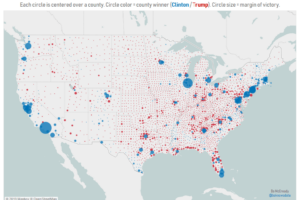
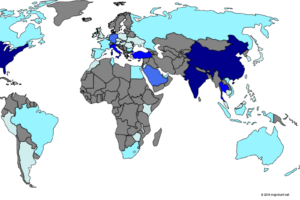
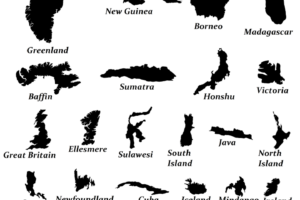
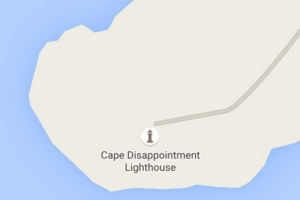
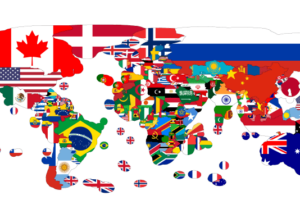
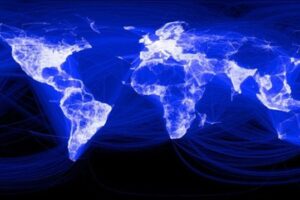
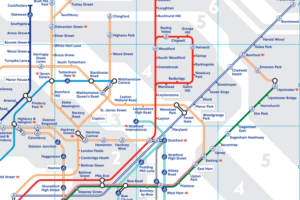
Frank Black says
One forgets that that Britain was not just Great Britain and Ireland, but included it’s entire empire, from which it could levy troops.
Mexor says
From which overseas territories do you envision the UK levying? Australia with their population of 1.4 million? India? South Africa? I think Britain would have felt more of a manpower drain than a manpower source from their colonies. They were economically important so British troops that otherwise could have been sent to North America would have had to remain in their overseas territories.
But I can’t imagine the US public would have felt much like another war immediately after the Civil War. Plus there was a lot more important work to be done with the Reconstruction. Those are probably the reasons it never even made it out of committee.
Steve says
India alone from my recollections was an abundant pool for colonial troops. You seem to be over-emphasising possessions being colonised by Europeans themselves rather than the other possessions. The key to understanding the British Empire’s manpower advantage is the word EMPIRE.
Mexor says
The important thing about empire is that it is a cost/benefit situation. You can’t try to combine the total sum of the parts as if they don’t have their own stipulations, etc. In the 18th century Britain was much more powerful than the American
colonies, yet the colonies won the War of Independence. Why? Because it
wasn’t worth it to the British to keep fighting.
What do you think the attitude of the populace of India, for example, would have been if the British sent tens of thousands of Indians off to the other side of the world to fight? Especially after over half of them never came back. What do you think the morale of those troops would have been in the cold Canadian climate eating food very foreign to them? Troops are also not replaceable parts. You can’t expect troops from India to perform that well in Canada against a seasoned army like the Americans had.
If you were the UK would you risk losing India to hold onto Canada? If you were an Indian would you want to risk losing your life to help Britain hold onto Canada?
In any case, I don’t understand this sentence: “You seem to be over-emphasising possessions being colonised by Europeans themselves rather than the other possessions.”
Steve Weatherbe says
India sent plenty of troops to fight in the Boer War and both world wars because they needed the work? Got conscripted? And they performed well enough against “seasoned” German troops.”
But on the other hand the UK needed its 220,000 troops to hold down its empire.
On the other other hand , the US war against tbe Confederacy was popular. However, would the northern electorate have supported an invasion of people who looked and acted like themselves? Who opposed slavery. Would they have supported keeping their men in uniformfor the purpose?
What of the British navy, 1000 ships in 1859, which couldnt have stopped the invasion, but could have bombarded many American ports?
Gumby says
I think you underestimate the logistical issues with bringing an army from a tropical Subcontinent to fight in the Frozen tundra of Canada. Housing their forces would become a serious issue and the climate would be a serious impediment.
wade says
Your map is incorrect in that you have Newfoundland as part of East Canada, it was never part of the original four, The Labrador part of the province , except for its coast, may have considered part of East Canada because that wasn’t decided until 1927 by international tribunal. But the island part and the coastal of Labrador would have been excluded. Newfoundland did not join Canada until 1949, close to a century later.
Cory Albrecht says
Labrador was given to Newfoundland in 1809, though the border was never fully specified back then. Québec only disputed the exact border between it and Labrador, never the severing of it.
strad77 says
Someone should set up the scenario in Civilization and see how it plays out!
Mexor says
Let’s wait for Civilization VI 😀
Arvind Iyer says
How about now!!
Philippe says
The French-Canadians only would have required to keep religion and language
AV Dad says
Would have completely changed beer history as we know it.
Cory Albrecht says
Sounds about as ill-informed about Canadian opinion as the thought during the War of 1812 that Canadians would immediately revolt the moment American troops waltzed across the border.
Gumby says
To what end? This is 1866…. the Union Army is battle hardened and fully prepared to lay waste to anyone who gets in their way. The US already has 20,000 pacification troops stationed in the South, they’ve basically already created an occupational force structure and would have little difficulty in putting down outspoken Canadian resistance.
To give you a window into the mindset of the Union Army in this time…
“War is cruelty. There is no use trying to reform it. The crueler it is, the sooner it will be over.”
With leaders like Sherman, the Union Army would efficiently and effectively subjugate the Provinces.
Ian Thompson says
Time to get this bill passed…..
Cory Albrecht says
Hells no. No sane Canadian wants our country to be part of the USA.
sammy says
No sane American wants any part of Canada. You can keep your globalist uni brow shill of a leader, along with his free speech trampling laws and his virtue signaling love affair with turd world fanatics who slaver at the chance to kill some more infidels
Steve says
Small point of contention: The war of 1812 was started by America, with advances into Canada as part of their war goals. Not only did America fail to achieve any gains, the Americans had their capital occupied (if briefly) and burned down by a British army. British naval superiority meant the US was effectively unable to project power further and thus by strategic superiority of their opponents position, had their options for continuance of the conflict restricted.
The only rational conclusion is that the United States lost.
It’s telling also how badly the US lost that it’s best popular revisionism is to call it a draw, as opposed to other wars. Most well known being WW2 European theatre, where many Americans still believe the US won and defeated Nazi Germany. Which is false in that the Soviet Union was already in the process of defeating Nazi Germany by the time of the Western Front being opened, and would have gone onto defeating Germany regardless. The Western allies land-war on that front was thus at best tying up some forces in the west and only modestly hastening the end of the war in Europe.
Britain at the time was the world’s pre-eminent super-power, and America still in many ways a ex-colonial backwater. It’s a credit to America that it had managed to survive and then thrive, but I feel like the strength of it’s hand in these earlier conflicts is overplayed.
We must always remember that the Revolutionary War was ultimately just a peripheral theatre of wider European imperial conflict, Manifest Destiny and US exceptionalism is self-deluding, not overly disimilar to North Korean notions of being able to single-handedly defeat the US in a full-on war.
Mexor says
You’re obviously anti-American. You are basing extreme claims on disputed interpretations carefully chosen to be amenable to your bias. You also seem to set up a strawman when you say “the strength of its hand in these earlier conflicts is overstated”, because in general people do not consider that the U.S. had a strong hand in the American War of Independence or in the War of 1812. It was and is well-known that Britain at that time was the most powerful country in the world.
Since the US beat the UK in the Revolutionary War, succeeded in spanning the continent, and became the most powerful country in the world is it your opinion that North Korea can single-handedly defeat the US in a full-on war?
Steve says
“You’re obviously anti-American.”
Wierd that you consider historical accuracy as “anti-American”.
Please work on your nationalism, nobody can take your statements on objective facts seriously when you’re clearly biased.
Mexor says
“Please work on your nationalism, nobody can take your statements on objective facts seriously when you’re clearly biased”
Why did you bother replying? All you did was try to accuse me of doing what you are doing.
Furthermore, the only objective facts here are that your interpretations are currently contended among historians. Even the historians that support any of your various carefully chosen interpretations would never call them “objective facts.” An objective fact is something like “The US declared war on the UK on June 18, 1812.” For a historian to propose a narrative for what led to that declaration of war is an interpretation of the known facts, not an objective fact.
Take care.
Jay says
NS tried and apparently the failure to become a part of the US boiled down to bad luck and that kills me. I would be in Texas now, not Nova Scotia, Canada. The guy you’re talking to is a fucking idiot! I would much prefer freedom in the US over an authoritarian police state controlled by a fucking tyrant. It pisses me off how close we were.
mP says
America only beat a second rate minor deployment by the British in the 1770s. Britain was far more concerned with France and other interests around the world.
Most americans cant handle the fact that the Soviets were the one who smashed the Germans. Stalingrad for example was the end of the Germans, and that was over when there was barely any americans in Europe. Regarding Lend Lease, by the time of Stalingrad few supplies had actually reached the Russians, simply because it takes time to plan, manufacture and send stuff over, and the bulk of supplies were spread over time, something that had not passed sufficiently by 43.
If you watched American movies and documentaries, you would learn that only America and Germany fought each other, and the British and Soviets im not sure what they did but they didnt actually fight.
Julian Richards says
The French were largely respnsible for the British defeat in the American Revolution… although King Louis XVI ultimately paid (almost literally) with his head soon afterwards. It was a costly intervention for the Bourbons.
No, I am really NOT anti-American. Massive respect. I do, though, think there is an awful lot of creation myth, legend and American exceptionalism woven in to the Revolutionary War that is rarely challenged (evil, brutish, Nazi Brits subjugating oppressed, massively taxed and enslaved plucky Americans … a la Mel Gibson).
We know British policy was to curtail colonial expansion westwards in to native American lands, which was unpopular in the colonies; that less than half of the populace supported the rebels; that the rebels went to Britain’s mortal enemy the French for help although Britain and the colonists had together just years before defeated said French in N America. The French of course were happy to use tbe Revolution for revenge on the British.
ALL nations have their myths, legends and exceptionalism… Britain certainly did in the Victorian Empire: G-d is an Englishman etc. And you can point to the British Empire for bad things… as long as you remember also that America had its own (largely but not exclusively) expansion and colonisation of other people’s lands and largely wiped out the Indian nationsie in tbe lursuit of gild and buffalo.
Sadly, until recent decades, expansion was human/national nature.
So, not anti-American… the world owes the US a lot, in many fields. But also aware that America’s creation is not the perfect giant-killing fairy tale most people think it is. The Canadians (as they would become) certainly weren’t impressed when the Americans invaded in the 1812 War … and sent the invaders home with a bloody nose.
Crazy Horse says
You are all look-alikes anyway.
Dennis Fyck says
Hudson’s Bay Territory wasn’t part of Canada in 1866, and was sold to the newly federated government in 1870. So the map of the provinces is inaccurate, furthermore then Annexation Bill wouldn’t annex Canada, just allow the process to happen were they to agree. At the time, the British Parliament would’ve needed approval. This would never happen without local popular support. There has never been any. At best [from an American perspective], passing an Annexation Bill in 1866 could’ve led to a second costly war between the USA (just over their Civil War) and the British Empire…At worst, it could have led to increased British interest in Canada and the potential for Imperial Federation.
Marcus Furlong says
So this doesn’t make much sense. Lower Canada, or Quebec today wouldn’t of had all that territory it does today, nor would Upper Canada, or Ontario. If we ignore that though, why the Hell would you include Newfoundland with Quebec? It makes literally no bloody sense. Newfoundland is not French, It’s Irish and English and is way too isolated from Quebec society to have it logically make sense to be included in the same state. I’m pretty sure Newfoundland would be admitted as it’s own state with the capital in St. John’s.
Jonathan says
The best time to conquer Canada would have been in WW1. The US would join the Central Powers , while the US would not be able to send troops to aid its allies it could have dispersed its navy across the ocean at the beginning of the war to harass British trade and naval ships, forcing the British to limit its navy on the illegal blockade of the German coast. The Germans would then have a much easier time breaking through the blockade. The British would blockade the US, but if the US takes control of Halifax and the Canadian Pacific coast, the British would not be able to bring reinforcements.
Dave Fisherman says
I’ve been intrested in WW1 History,
for A while, your right, the U.S.A. should, have annexed
Canda, during WW1, to blockade Germany spy ships from
NORTH-Americas coast, thought.
Thanks Dave-Fisherman.-U.S.A.
Kristján Birnir Ívansson says
Today Canada is less population than California alone. 38 million for Canada as
So considering the size of the two countries I think it would be rather easy for US to go up north with the army if they wanted but far as today international politics goes it would look rather odd if the US actually did so and there is plenty of stupid going on in the world today so we don’t need more stupid things than already are.
I’m not going to valop in 1812 or anything post-Revolutionary War to present. Considering all the fine comments already given.
I would like to offer another alternative what if the 5 colonies that ended up coming Canada had displaced similar disloyalty to Britain as the original 13 colonies did? https://en.wikipedia.org/wiki/British_America
But I cannot find anything valid to confirm if those 13 colonies that ended up revolting offered those other five to join the revolution against the British or not. If the answer is yes, then it was probably made clear by them that they would stay loyal to the British ether by letter or by gun shot at the rebals. IF no then there are high chenges that if those colonies that ended up becoming Canada felt that since they were not asked to join the revolution down south then they might was well-staying loyal to the British.
Ranky Tanky says
One more Brilliantmaps.com posting with serious factual errors. Newfoundland wasn’t part of Canada in 1866 and was not mentioned in the Annexation Bill. It was a quasi-independent part of the British Empire, not a section of “East Canada.” It didn’t join Canada until 1949.
Dave Fisherman says
very, intresting article about
A bill in Congress that never became law.
I wish, America passed this bill and Annexed Canda
in 1866. I know USA wanted to annex Canda,
but I didn’t know their, was such bill that was prosed to Congress.
I wish, that A partition, was sent to Washingtion, to Annex Canda and The Russian,
Federation, After PURTO RICO possible in the near Future.
I respected trump Even, thought I don’t think he should be re-elected in Nov, 2020,
ect. I would like to see the Russian-Federation, as A stronger, Democracy in the future, with-out Putin, or as An Annexed U.S. State.
Thanks Dave-Fisherman.-U.S.A.
James Pearce says
Much of the population that origonally settled what is now Ontario were from what is now the United States. They were loyalists who fled the United States. Thus when the United States in 1812 attempted to invade Canada and did battle, they were essentially refighting a battle of the American revolutionary war from a few years earlier, but this time as invaders not defenders and in an area full of loyalists. There is even a monument in Ontario to one of the heroes of that war, a woman of loyalist background who with her family had fled to Canada from Boston. Think of it as a another chapter in the long English Civil War of which the American Revolution was one chapter. Many people oversimplify history and wars. The colonies were not totally unified against the crown at the time of the American Revolution. Those loyalist did not stay in all cases, they left and their descendants in large part formed Canada.
Michael Wolff says
Explain what connection you see with the English Civil War. It was 200 years earlier, a rationale that was entirely to do with religion and the respective powers of monarch and parliament, American colonies in their very earliest infancy and no other British colonial possessions.
Will says
The war of 1812 a draw? Don’t forget, we burned down your white house….
Jamie says
Nova Scotia tried because we had a lot of rebels willing to fight. But because of bad timing it got squashed. Canada is a joke in 2022! We’ve become a police state. We have a dictator in power actively trying to suppress freedom of speech, freedom of the press (Bill C-11). He is currently violating our right to peacefully protest. Canada isn’t free anymore! We have state run media outlets similar to that of China who, Trudeau “really respects how they keep their people in line”. His words, not mine. With how things are going, there will eventually be a war here, when people wake up from their CBC induced coma and realize they’ve been lied to on a massive scale. I see it as inevitable.